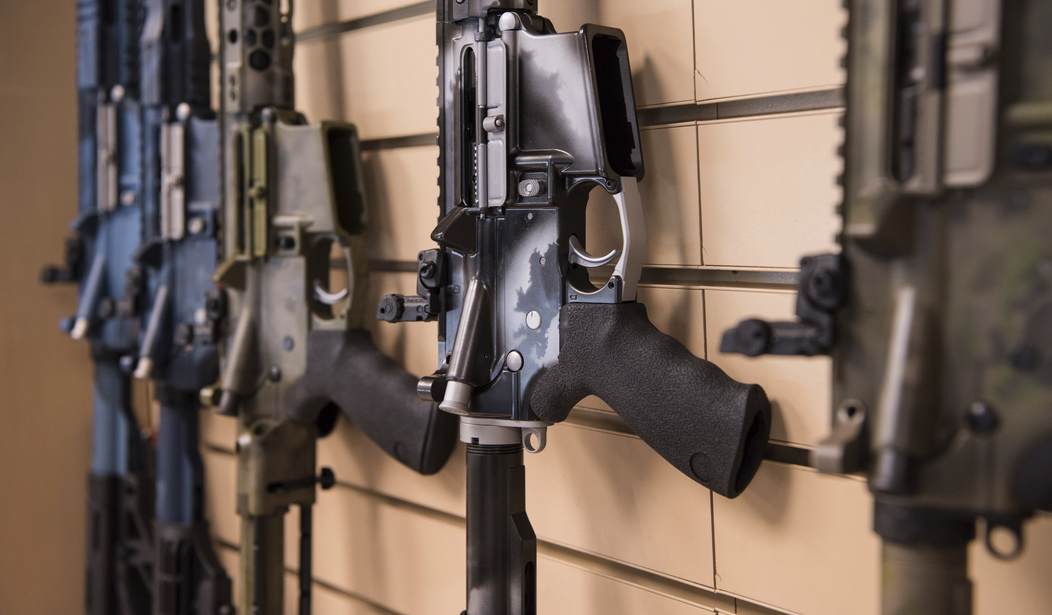The state of Illinois is known for a lot of things, including their governor-to-prison pipeline, but mostly they're known for the violence level in Chicago. The Windy City has a lot going for it, but violent crime is notoriously bad there and local leaders don't seem to want to do anything about it. Instead, they gripe about needing gun control not just there but everywhere else.
Well, the state legislature is driven primarily by Chicago, and they certainly have tried. One recent measure, though, was just trounced in court.
It seems that the ever-popular assault weapon ban like those you see in so many other states just wasn't meant to be. After all, unconstitutional laws tend to run into that.
A federal judge in downstate Illinois has ruled the state's ban on assault weapons is unconstitutional, but will hold off on prohibiting the state from enforcing it for one month to allow for a likely appeal.
U.S. District Judge Stephen McGlynn, who sits on the federal court in East Saint Louis, wrote in his 168-page opinion that the statewide ban on assault-style weapons violates the Second Amendment.
The Protect Illinois Communities Act bans the sale of assault-style weapons and high-capacity magazines, and requires existing owners of those weapons to register them with Illinois State Police.
The legislation, signed into law in January 2023, banned dozens of specific brands or types of rifles and handguns, .50-caliber guns, attachments and rapid-firing devices. No rifle will be allowed to accommodate more than 10 rounds, with a 15-round limit for handguns.
As part of his ruling that the assault weapons ban is unconstitutional, McGlynn issued a permanent injunction prohibiting enforcement of the ban, but he stayed that injunction for 30 days to give the state time to file an appeal.
Gun control laws have come under renewed scrutiny in the wake of the Supreme Court's June 2022 decision that imposed a new framework for evaluating the constitutionality of gun restrictions. In that ruling, the court said that for firearms laws to comply with the Second Amendment, the government must identify historical analogues that show the measure is consistent with the nation's history and tradition of firearms regulation.
McGlynn sided with plaintiffs who argued the Illinois assault weapons ban does not fit within the Supreme Court's framework, and who argued that assault weapons are commonly used for self-defense.
"What is particularly disturbing is that the prohibition of weapons that are commonly owned and used by citizens are now banned, depriving citizens of a principal means to defend themselves and their property in situations where a handgun or shotgun alone would not be the citizen's preferred arm," McGlynn wrote. "Sadly, there are those who seek to usher in a sort of post-Constitution era where the citizens' individual rights are only as important as they are convenient to a ruling class."
While the judge gave Illinois time to appeal with his 30-day stay, the question is whether they'll appeal or not.
Gov. J.B. Pritzker says the state will, and that's probably the best news gun rights advocates could hope for.
Recommended
See, now it will go to the Seventh Circuit Court of Appeals, where the law will likely be upheld because that's just how the Seventh Circuit rolls, which will lead to an appeal by the gun rights side of this case, which will, in time, lead it to the Supreme Court.
Without Illinois appealing the ruling, this would just hold firm for Illinois and not really most other places. By taking it up the judicial food chain, the area being impacted by the ruling expands. Sooner or later, the Supreme Court will have to take up an assault weapon ban case, and while Rahimi wasn't quite what anyone on the gun rights side wanted to see, there's virtually no way the Court will be able to rule in favor of any such ban.
After all, there are so many assault weapon ban cases that are floating around and have been since the ink started drying on the Bruen decision. There's just no analog for a restriction like this from the time of the Founding. Private individuals owned heavy artillery, after all, so it's hard to say that the Founding Fathers would have found any weapon too dangerous for private use.
Not that they haven't tried, of course, but it's all nonsense.
This was a major setback for Illinois, though it's far from the final blow.

























